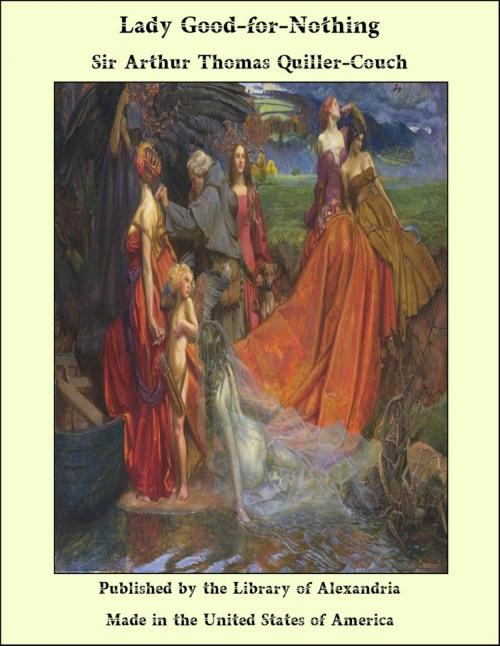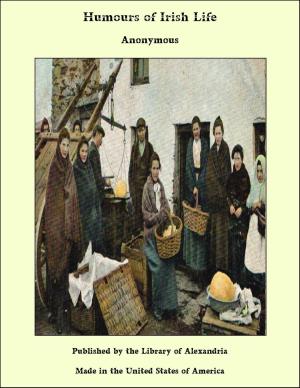| Author: | Sir Arthur Thomas Quiller-Couch | ISBN: | 9781465594068 |
| Publisher: | Library of Alexandria | Publication: | March 8, 2015 |
| Imprint: | Language: | English |
| Author: | Sir Arthur Thomas Quiller-Couch |
| ISBN: | 9781465594068 |
| Publisher: | Library of Alexandria |
| Publication: | March 8, 2015 |
| Imprint: | |
| Language: | English |
In fairness to Captain Vyell be it added that he—a young English blood, bearing kinship with two or three of the great Whig families at home, and sceptical as became a person of quality—was capable as any one of relishing the comedy, had it been pointed out to him. With equal readiness he would have scoffed at Man's pretensions in this world and denied him any place at all in the next. Nevertheless on a planet the folly of which might be taken for granted he claimed at least his share of the reverence paid by fools to rank and wealth. He was travelling this lonely coast on a tour of inspection, to visit and report upon a site where His Majesty's advisers had some design to plant a fort; and a fine ostentation coloured his progress here as through life. He had brought his coach because it conveyed his claret and his batterie de cuisine (the seaside inns were detestable); but being young and extravagantly healthy and, with all his faults, very much of a man, he preferred to ride ahead on his saddle-horse and let his pomp follow him. Six horses drew the coach, and to each pair of leaders rode a postillion, while a black coachman guided the wheelers from the box-seat; all three men in the Collector's livery of white and scarlet. On a perch behind the vehicle—which, despite its weight, left but the shallowest of wheel-ruts on the hard sand—sat Manasseh, the Collector's cook and body-servant; a huge negro, in livery of the same white and scarlet but with heavy adornments of bullion, a cockade in his hat, and a loaded blunderbuss laid across his thighs. Last and alone within the coach, with a wine-case for footstool, sat a five-year-old boy. Master Dicky Vyell—the Collector's only child, and motherless—sat and gazed out of the windows in a delicious terror. For hours that morning the travellers had ploughed their way over a plain of blown sand, dotted with shrub-oaks, bay-berries, and clumps of Indian grass; then, at a point where the tall cliffs began, had wound down to the sea between low foothills and a sedge-covered marsh criss-crossed by watercourses that spread out here and there into lagoons. At the head of this descent the Atlantic had come into sight, and all the way down its echoes had grown in the boy's ears, confusing themselves with a delicious odour which came in fact from the fields of sedge, though he attributed it to the ocean.
In fairness to Captain Vyell be it added that he—a young English blood, bearing kinship with two or three of the great Whig families at home, and sceptical as became a person of quality—was capable as any one of relishing the comedy, had it been pointed out to him. With equal readiness he would have scoffed at Man's pretensions in this world and denied him any place at all in the next. Nevertheless on a planet the folly of which might be taken for granted he claimed at least his share of the reverence paid by fools to rank and wealth. He was travelling this lonely coast on a tour of inspection, to visit and report upon a site where His Majesty's advisers had some design to plant a fort; and a fine ostentation coloured his progress here as through life. He had brought his coach because it conveyed his claret and his batterie de cuisine (the seaside inns were detestable); but being young and extravagantly healthy and, with all his faults, very much of a man, he preferred to ride ahead on his saddle-horse and let his pomp follow him. Six horses drew the coach, and to each pair of leaders rode a postillion, while a black coachman guided the wheelers from the box-seat; all three men in the Collector's livery of white and scarlet. On a perch behind the vehicle—which, despite its weight, left but the shallowest of wheel-ruts on the hard sand—sat Manasseh, the Collector's cook and body-servant; a huge negro, in livery of the same white and scarlet but with heavy adornments of bullion, a cockade in his hat, and a loaded blunderbuss laid across his thighs. Last and alone within the coach, with a wine-case for footstool, sat a five-year-old boy. Master Dicky Vyell—the Collector's only child, and motherless—sat and gazed out of the windows in a delicious terror. For hours that morning the travellers had ploughed their way over a plain of blown sand, dotted with shrub-oaks, bay-berries, and clumps of Indian grass; then, at a point where the tall cliffs began, had wound down to the sea between low foothills and a sedge-covered marsh criss-crossed by watercourses that spread out here and there into lagoons. At the head of this descent the Atlantic had come into sight, and all the way down its echoes had grown in the boy's ears, confusing themselves with a delicious odour which came in fact from the fields of sedge, though he attributed it to the ocean.















